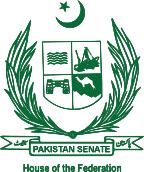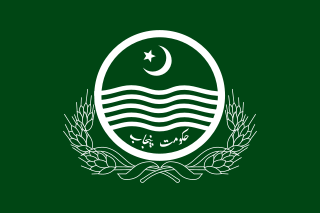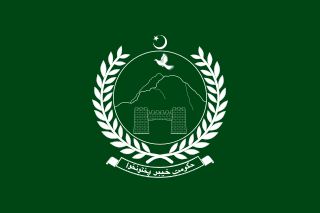
Federalism is a mode of government that combines a general government with regional governments in a single political system, dividing the powers between the two. Johannes Althusius is considered the father of modern federalism along with Montesquieu. He notably exposed the bases of this political philosophy in Politica Methodice Digesta, Atque Exemplis Sacris et Profanis Illustrata (1603). Montesquieu sees in the Spirit of Laws, examples of federalist republics in corporate societies, the polis bringing together villages, and the cities themselves forming confederations. Federalism in the modern era was first adopted in the unions of states during the Old Swiss Confederacy.

The Politics of Pakistan takes place within the framework established by the constitution. The country is a federal parliamentary republic in which provincial governments enjoy a high degree of autonomy and residuary powers. Executive power is vested with the national cabinet which is headed by Prime Minister of Pakistan, who works with the bicameral parliament and the judiciary. Stipulations set by the constitution provide a delicate check and balance of sharing powers between executive, legislative, and judicial branches of the government.

A federated state is a territorial and constitutional community forming part of a federation. Such states differ from fully sovereign states, in that they do not have full sovereign powers, as the sovereign powers have been divided between the federated states and the central or federal government. Importantly, federated states do not have standing as entities of international law. Instead, the federal union as a single entity is the sovereign state for purposes of international law. Depending on the constitutional structure of a particular federation, a federated state can hold various degrees of legislative, judicial, and administrative jurisdiction over a defined geographic territory and is a form of regional government.

The Constitution of Pakistan, also known as the 1973 Constitution, is the supreme law of Pakistan. The document guides Pakistan's law, political culture, and system. It sets out the state's outline, the fundamental rights of the population, the state's law and orders, and also the structure and establishment of the institutions and the armed forces. Drafted by the government of Zulfikar Ali Bhutto, with additional assistance from the country's opposition parties, it was unanimously approved by the 5th Parliament on 10 April and ratified on 14 August 1973. The first three chapters establish the rules, mandate, and separate powers of the three branches of the government: a bicameral legislature; an executive branch governed by the Prime Minister as chief executive; and an apex federal judiciary headed by Supreme Court. The Constitution designates the President of Pakistan as a ceremonial Head of State who is to represent the unity of the state. The first six articles of the constitution outline the political system as federal parliamentary republic system; as well as Islam as its state religion. The Constitution also encapsulates provisions stipulating the legal system's compliance with Islamic injunctions contained in the Quran and Sunnah.

The president of Pakistan is the head of state of the Islamic Republic of Pakistan. The president is the nominal head of the executive and the supreme commander of the Pakistan Armed Forces. Arif Alvi is the 13th and current president, in office since 9 September 2018.

The prime minister of Pakistan is the head of government of the Islamic Republic of Pakistan. Executive authority is vested in the prime minister and his chosen cabinet, despite the president of Pakistan serving as the nominal head of executive. The prime minister is often the leader of the party or the coalition with a majority in the lower house of the Parliament of Pakistan, the National Assembly where he serves as Leader of the House. Prime minister holds office by virtue of their ability to command the confidence of the National Assembly. The prime minister is designated as the "Chief Executive of the Islamic Republic".

The Senate of Pakistan or Aiwān-e-Bālā Pākistān, constitutionally the House of the Federation, is the upper house of the bicameral Parliament of Pakistan. As of 2023, It has a maximum membership of 100, of which 92 are elected by the provincial legislatures using single transferable vote. Four represent the Federal Capital and another four are representing former Federally Administered Tribal Areas, until membership expiration in 2024. Members sit for terms lasting six years, with half of the house up for election every three years. Unlike the National Assembly, the Senate is a continuing chamber and hence not subject to dissolution.

The Supreme Court of Pakistan is the apex court in the judicial hierarchy of the Islamic Republic of Pakistan.

The Parliament of Pakistan is the supreme legislative body of the Islamic Republic of Pakistan. It is a bicameral federal legislature, composed of the President of Pakistan and two houses: the Senate and the National Assembly. The president, as head of the legislature, has the power to summon or prorogue either house of the Parliament. The president can dissolve the National Assembly, only on the Prime Minister's advice.
A state government is the government that controls a subdivision of a country in a federal form of government, which shares political power with the federal or national government. A state government may have some level of political autonomy, or be subject to the direct control of the federal government. This relationship may be defined by a constitution.

The Government of Pakistan, constitutionally known as the Federal Government, commonly known as the Centre, is the national authority of the Islamic Republic of Pakistan, a federal parliamentary republic consisting of four provinces, two autonomous territories and one federal territory.

The National Finance Commission Award or NFC is a series of planned economic programs in Pakistan enacted since 1951. Constituted under the Article 160 of the Constitution, the program was emerged to take control of financial imbalances and equally managed the financial resources to four provinces to meet their expenditure liabilities while alleviating the horizontal fiscal imbalances. As per Constitution, the program awards the designs of financial formulas of economic distribution to provincial and federal government for five consecutive years. All together, a total of seven awards has been reimbursed since its emergence in 1951, by Prime Minister Liaquat Ali Khan. Stipulations and directions mentioned by the Constitution, the provisional governments and federal government competes to get higher share of the program's revenues in order to stabilize their own financial status.

The Central Superior Services is a permanent elite civil service authority, and the civil service that is responsible for running the bureaucratic operations and government secretariats and directorates of the Cabinet of Pakistan. The Prime Minister is the final authority on all matters regarding the civil service.

The Provincial Assembly of the Punjab is a unicameral legislature of elected representatives of the Pakistani province of Punjab, which is located in Lahore, the provincial capital. It was established under Article 106 of the Constitution of Pakistan, having a total of 371 seats, with 297 general seats, 66 seats reserved for women and 8 reserved for non-Muslims. The 17th Provincial Assembly of the Punjab was dissolved prematurely on 14 January 2023. The date of next elections in Punjab is being highly contested legally. The Constitution of Pakistan requires that new elections for the Punjab Assembly must be held within 90 days from the date of dissolution under Article 224(3)(a). Therefore, by law, new elections for the Punjab Assembly must have been held by 14 April 2023. However, the Election Commission of Pakistan had unilaterally announced that the province was set to elect a new legislature on 14 May 2023. After that date's passing, it is unclear when provincial elections will be held.

A parliamentary republic is a republic that operates under a parliamentary system of government where the executive branch derives its legitimacy from and is accountable to the legislature. There are a number of variations of parliamentary republics. Most have a clear differentiation between the head of government and the head of state, with the head of government holding real power and the head of state being a ceremonial position, similar to constitutional monarchies. In some countries the head of state has reserve powers to use at their discretion as a non-partisan "referee" of the political process. Some have combined the roles of head of state and head of government, much like presidential systems, but with a dependency upon parliamentary confidence.

The Provincial Assembly ofKhyber Pakhtunkhwa is a unicameral legislature of elected representatives of the Pakistani province of Khyber Pakhtunkhwa, which is located in Peshawar, the provincial capital. It was established under Article 106 of the Constitution of Pakistan, having a total of 145 seats, with 115 general seats, 26 seats reserved for women and 4 reserved for non-Muslims. The 11th Provincial Assembly of the Khyber Pakhtunkhwa was dissolved on 18 January 2023, and the province is set to elect a new legislature on 8 October 2023.
The Eighteenth Amendment of the Constitution of Pakistan was passed by the National Assembly of Pakistan on April 8, 2010, removing the power of the President of Pakistan to dissolve the Parliament unilaterally, turning Pakistan from a semi-presidential to a parliamentary republic, and renaming North-West Frontier Province to Khyber Pakhtunkhwa. It also gave self-governing, legislative and financial autonomy to provincial authorities. The package was intended to counter the sweeping powers amassed by the presidency under former presidents General Pervez Musharraf and General Muhammad Zia-ul-Haq and to ease political instability in Pakistan. The bill reversed many infringements on the Constitution of Pakistan over several decades by its military rulers. The amendment bill was passed by the Senate of Pakistan on April 15, 2010 and it became an act of parliament when President Asif Ali Zardari signed the bill on April 19, 2010. It was the first time in Pakistan's history that a president relinquished a significant part of his powers willingly and transferred them to parliament and the office of the prime minister.

A chief minister, is the elected head of government of a province in Pakistan. The chief minister is the head of the provincial government, whereas in contrast, the governor is the nominal head, or the "de jure executive" and does everything under the guidance of the chief minister. The chief minister is elected by the provincial assembly, and is the leader of the provincial Legislature.

The Council of Common Interests (CCI) is a constitutional body in the Government of Pakistan. It is appointed by the President on the advice of the Prime Minister. The CCI resolves the disputes of power sharing between the federation and its provinces. The Council works under Ministry of Inter Provincial Coordination and is responsible to both houses of Parliament, the Senate of Pakistan and the National Assembly of Pakistan.









